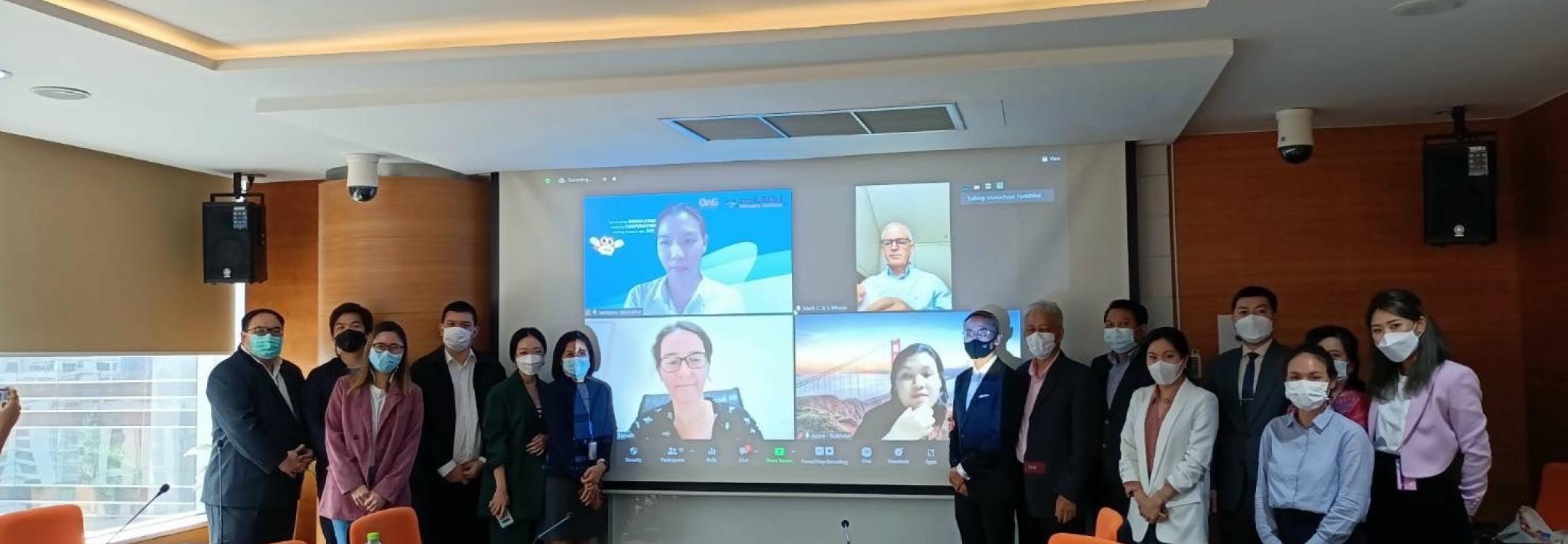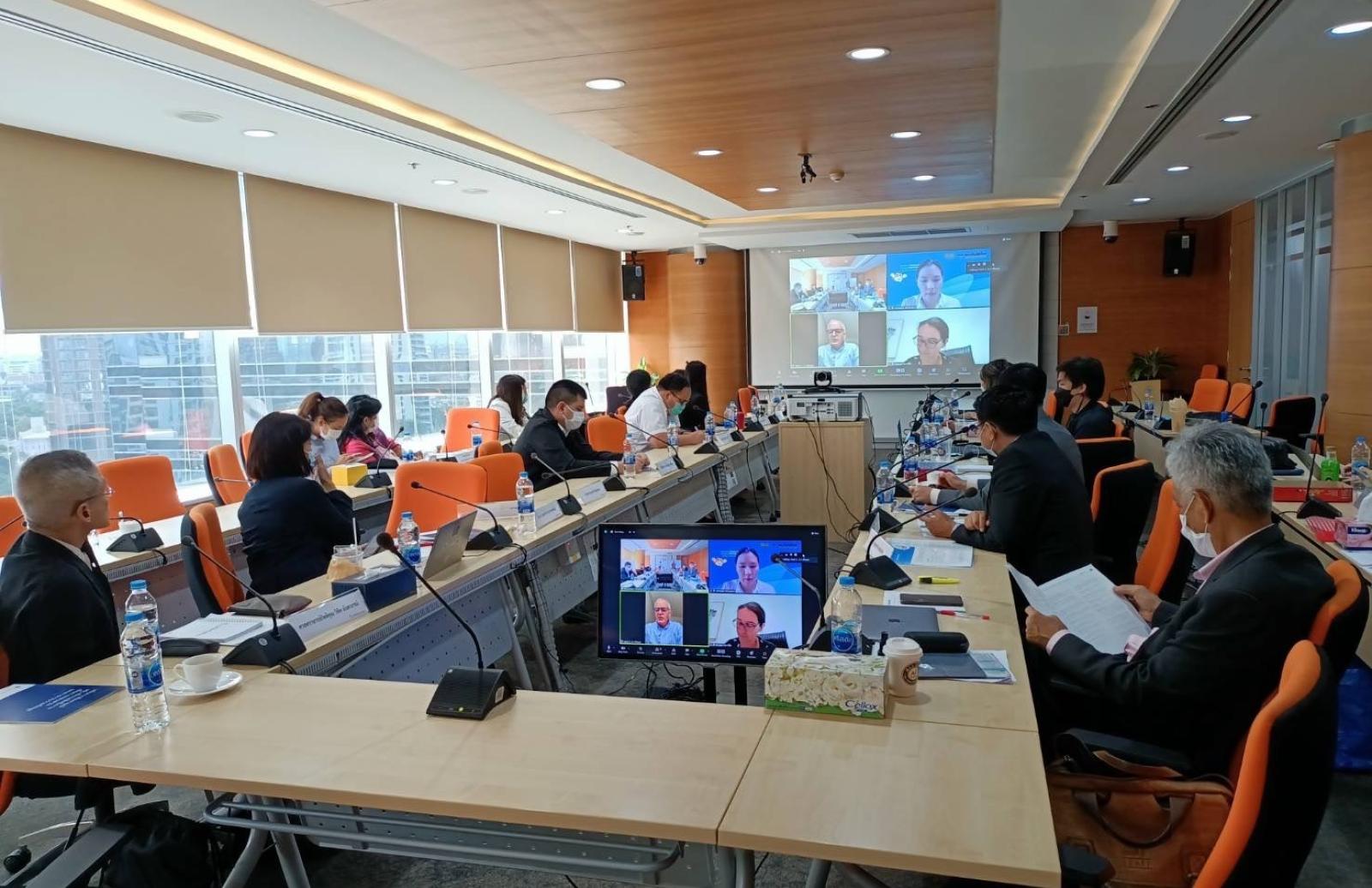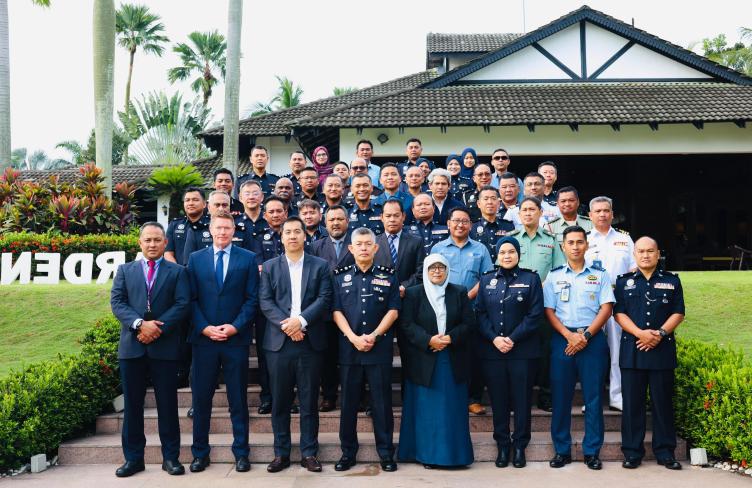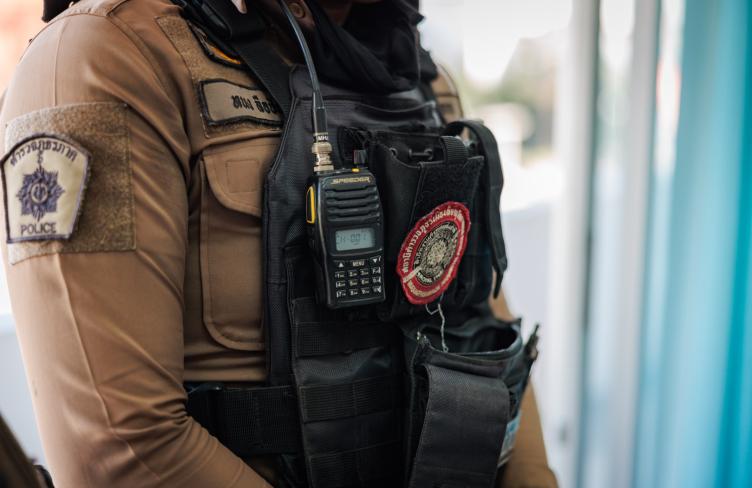
A key step towards implementing the Méndez Principles on Effective Interviewing and incorporating them into Thai police policies, practice and culture is to first ensure that a consistent and agreed terminology is used by all stakeholders across the justice system.
The importance of developing an agreed terminology that encapsulates the concept of ‘effective interviewing’ was the focus of a one-day workshop in Bangkok, co-organised by the Cross Cultural Foundation (CrCF) of Thailand and APT, and hosted by the Thai Institute of Justice (TIJ).
The workshop, held on 4 August 2022, builds on the APT’s long-standing engagement with Thai government officials, law enforcement authorities, civil society organisations and academics from the time the Méndez Principles – also known as the Principles on Effective Interviewing for Investigations and Information Gathering – were being drafted in 2019. Our engagement continued following their adoption in 2021, including awareness-raising workshops this year with the Ministry of Justice and the Royal Police Cadet Academy.
Thailand was one of 42 States that joined a statement welcoming the Méndez Principles, which was delivered to the Human Rights Council in June 2022.
“The terminology and concepts embedded in the Méndez Principles - such as ‘effective interviewing’, ‘rapport-based interviewing’ or even ‘investigation’ – can have different meanings in the Thai context and in Thai legislation,” said APT Regional Project Officer Manachaya Yankittikul.
“This workshop brought together law enforcement authorities, academics and civil society representatives to discuss the most effective terminology to support the implementation of ‘effective interviewing’ in the Thai context,” she said.
As noted by Associate Professor Yukti Mukdawijittra, from the Faculty of Sociology and Anthropology of Thammasat University, words are important because they reflect the power dynamics and relationship between speaker and listener.
People often modify the language to serve their own agenda. Hence, language can work to change the mindset of the duty bearer. ‘Interview’ is not commonly used in the investigation process but the word creates a more equal relationship to the beneficiaries
The panel discussion featured a variety of insights and perspectives shared by representatives from the Royal Thai Police; Department of Special Investigation (DSI); Department of Provincial Administration; Nitivajra Institute of the Office of the Attorney General; National Human Rights Commission of Thailand; Rights and Liberty Protection Department of the Ministry of Justice; and human rights lawyers from CrCf and TIJ. The historical perspective related to drafting and choosing specific terminology was shared by Mark Thomson, former APT Secretary General and Co-Chair of Méndez Principles Steering Committee.
Police representatives shared their concerns about using the word – ‘interviewing’ – which is not reflected in the current policing standards and protocols.
“As a law enforcement officer, we have to follow the legal procedure,” DSI representative Khemachart Prakyhongmanee said. “We are trying to advocate for the use of ‘interview’ in our work through our internal training. It would take some time to shift from current legal terms to ‘interviews’. Regardless of the legal terms, we should be mindful about safeguards and due process.”
Santanee Disayabutr, Director of Nitivajra Institute and member of the Méndez Principles Advisory Committee, highlighted that the “Méndez Principles not only focus on the professional questioning process but also look at preparation and post-interview processes. We need a word that describes the whole process and reflects a human rights-based approach to fact-finding.”
Vitit Muntabhorn, Professor Emeritus of the Faculty of Law, Chulalongkorn University, summarised the discussions by noting that “effective interviewing is very contextual and the means to an end. In the Thai context, there are many legal terms for investigation. In order to incorporate ‘interview’ in practice, we need a general term for interview and another term to describe information gathering in different processes.”
Mark Thomson, concluded that “a joint multidisciplinary approach is our best chance of making convincing progress towards human rights-based policing in Thailand”.
CrCF will prepare a full report of the workshop - part of the #SafeInCustody project – and share the findings with partners to continue promoting the importance of moving away from interrogation and towards interviewing in Thailand’s criminal justice system.
The #SafeInCustody project is funded by the European Union. This content is the sole responsibility of the APT and does not necessarily reflect the views of the European Union.


